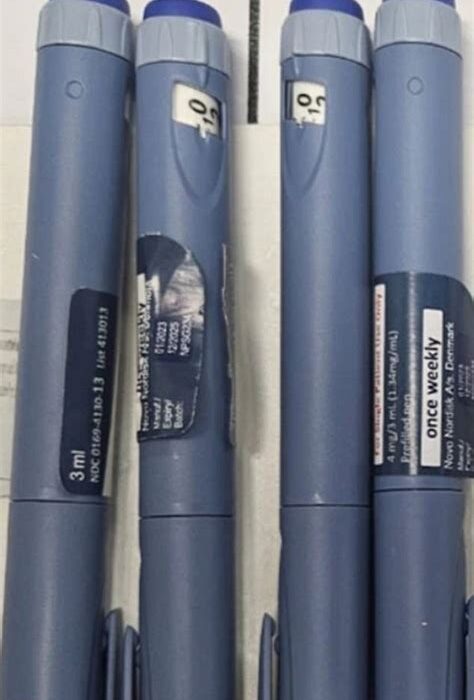Counterfeit medications are a serious issue, and the recent discovery of fake Ozempic-labelled products at the Australian border has raised significant concerns. The Therapeutic Goods Administration (TGA) has taken swift action in response to this alarming development, issuing a warning to Australians about the dangers of these counterfeit pens.
Uncovering the Counterfeit
The fake Ozempic products were identified by their labeling, specifically those marked with the batch number MPSD916. It was determined that these products were not genuine by Novo Nordisk, the manufacturer of Ozempic. Consumers who possess any pens bearing this batch number have been advised to immediately take them to a local pharmacy for proper disposal.
Health Risks and Safety Concerns
The TGA emphasized that using these counterfeit ozempic injection pens could pose severe health risks. A spokesperson highlighted that such counterfeit products have not undergone the necessary assessments for quality, safety, and efficacy as mandated by Australian regulations. Red flags indicating the falsity of these products included typographic errors in packaging such as irregular spacing and bold text inconsistencies.
The Importance of Legitimate Sources
This incident serves as a stark reminder of the importance of sourcing medicines from legitimate and trustworthy outlets rather than relying on online purchases. The TGA urged consumers to exercise caution when procuring medications from unfamiliar overseas websites and strongly recommended obtaining them from reputable Australian pharmacies.
Collaborative Efforts in Combating Counterfeits
Following this discovery, efforts have been intensified to prevent future shipments of counterfeit and substandard Ozempic from entering Australia. The TGA is working closely with the Australian Border Force (ABF) to intercept and destroy any such illicit products encountered at the border. Additionally, steps are being taken to address product shortages by approving temporary supplies of legitimate overseas-registered semaglutide products.
As situations like this highlight potential risks associated with counterfeit medications, it is crucial for consumers to remain vigilant about where they source their pharmaceuticals. By staying informed and heeding warnings issued by regulatory bodies like the TGA, individuals can safeguard their health and well-being against deceptive practices within the pharmaceutical industry.
—
**Related Stories**
– **Health Warning after measles case visits busy pub**: An outbreak underscores public health concerns.
– **’Get vaccinated’: Cases surge in Australia**: Urgent plea amidst rising disease incidence nationwide.
– **Problems Mum’s warning after teen paralysed at beach**: A mother’s cautionary tale following a tragic incident.

